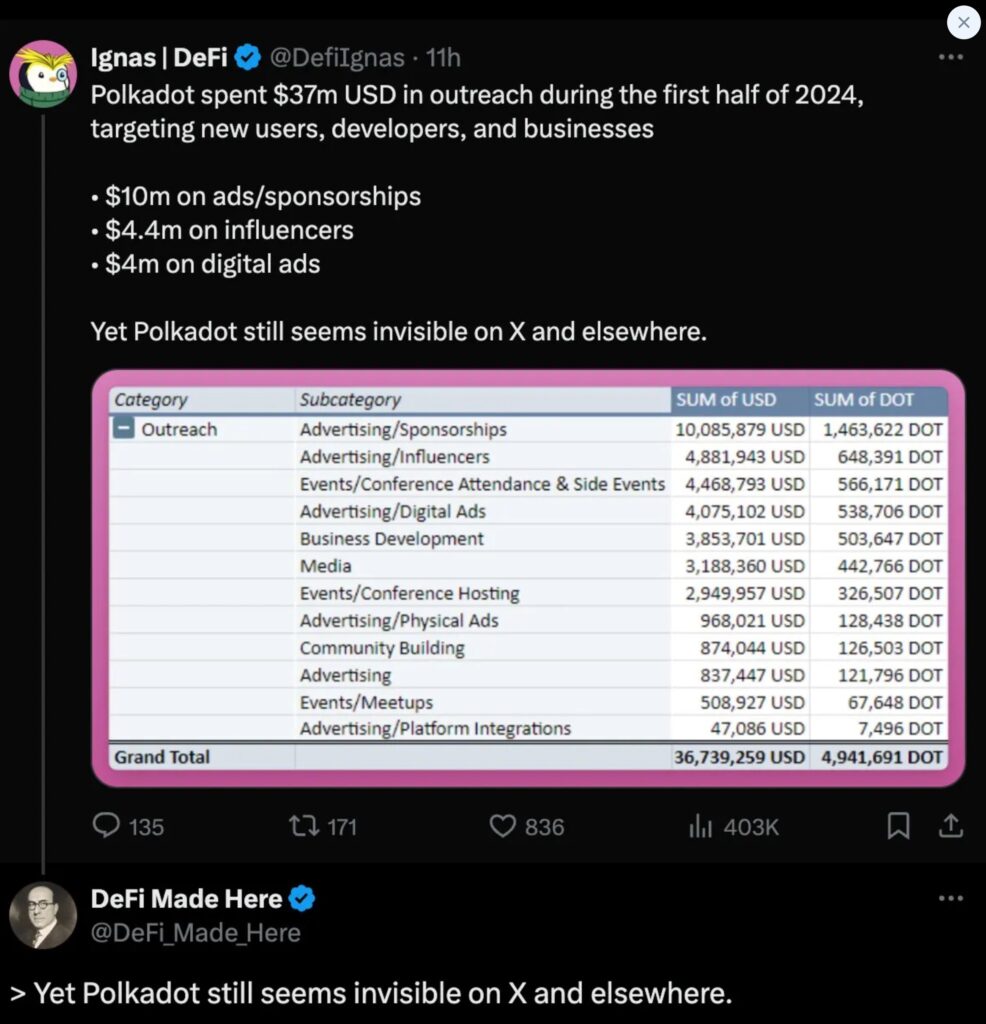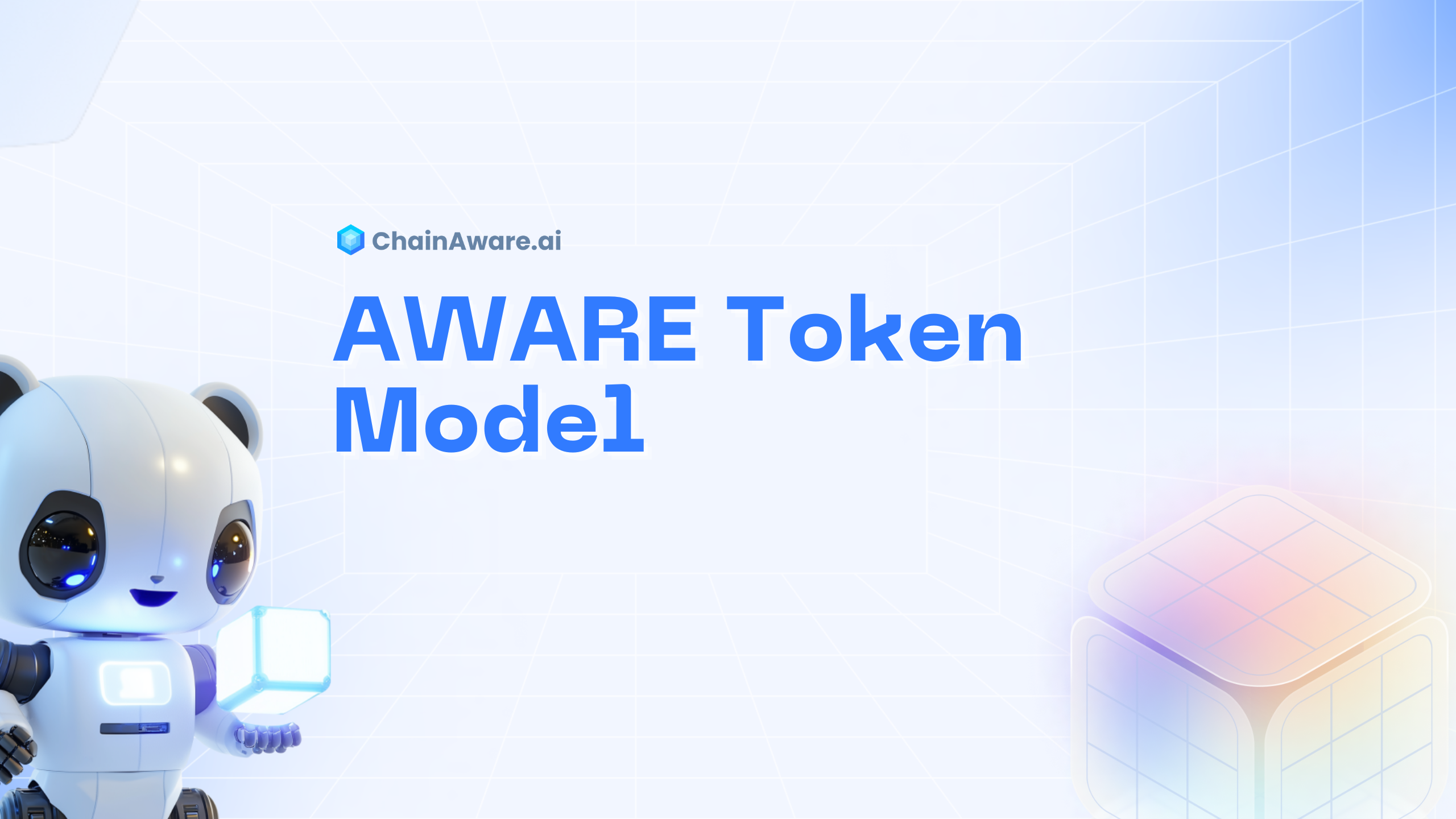Influencer marketing has become a popular strategy for crypto projects aiming to reach a broader audience. However, its sustainability is increasingly questionable. Numerous industry cases highlight the pitfalls and inefficiencies of relying on influencers to drive engagement and adoption. This article delves into why influencer marketing is problematic for Web3 and presents an alternative approach: personalized targeting and wallet segmentation, as offered by ChainAware.ai. This is not a promotional article; we believe that Web3 marketing is broken and that our product can solve this problem.
Case Study: A Costly Lesson
One glaring example is a project that paid 15,000 USDT in tokens to a tier 1 influencer for a few promotional tweets. The influencer, upon receiving the tokens, sold them all in one go, causing a 10% price dump. This not only devalued the token but also eroded trust among the project’s community and investors. This is the reality for projects when they partner with influencers. Influencers buy tokens to sell when the price is high, or they sell tokens immediately after receiving them. We believe that this is not a shock to anyone building in web3, but somehow, no one is talking about this problem.
The High Costs of Influencer Marketing: $37m for Nothing
Consider a platform (Polkadot) that spent a staggering $87 million on marketing efforts, including influencers, conferences, and events. Over 40% of this budget—$36.7 million—went to advertising and influencer partnerships. Despite this massive expenditure, the community expressed outrage, citing a lack of tangible results. The high spending failed to deliver the expected returns, particularly criticizing the effectiveness of influencer marketing.

Polkadot spent $37 million on marketing efforts, which did not yield the desired results. The significant expenditure included advertising, influencers, conferences, and events. Despite the investment, the marketing campaign failed to deliver substantial returns, leading to community backlash and questioning the effectiveness of such high spending on promotional activities.
For more details, you can read the full article here.
Lack of Transparency and Disclosure
Influencers often blur the lines between genuine endorsements and paid promotions. Many fail to disclose their financial relationships with crypto projects, misleading their audience and damaging investor trust. This lack of transparency can lead to skepticism and erode credibility.
Unethical Practices and Fraud
The influencer marketing industry is rife with unethical practices. Fake influencers, inflated engagement metrics, and fraudulent behavior are rampant. Crypto projects, given their high-risk nature, are particularly vulnerable to these practices. Investing in influencer marketing can sometimes mean wasting resources on fraudulent activities that offer little to no real value.
Regulatory Challenges
Global regulation around crypto marketing is inconsistent. Different countries have different rules, making compliance a nightmare for crypto projects. For instance, France is considering banning influencers from promoting crypto altogether. Navigating this regulatory minefield adds complexity and risk to influencer marketing campaigns.
Credibility and Reputation Risks
Choosing the wrong influencer can backfire spectacularly. If an influencer promotes a dubious project or is involved in a scandal, it can tarnish the reputation of the crypto project they endorse. This association can be damaging, leading to a loss of trust and credibility.
Lack of Measurable Results
One of the biggest challenges of influencer marketing is measuring its effectiveness. Vanity metrics like likes and views do not necessarily translate to meaningful engagement or conversions. Without clear, measurable results, it’s difficult to justify the high costs associated with influencer marketing.
The Alternative: Personalized Targeting, Messaging and Wallet Segmentation
ChainAware.ai offers a sustainable and effective approach to marketing in the Web3 space. By leveraging advanced segmentation tools, ChainAware.ai can uncover anonymous users and create specific target audiences, delivering personalized ads that resonate with each user.
How ChainAware.ai Works
- Integration: Platforms needs to integrate our pixel code to their platform via Google Tag Manager.
- Data Collection: ChainAware.ai gathers data from various user interactions within the blockchain ecosystem.
- Behavior Analysis: The AI analyzes this data to identify distinct user behaviors and patterns.
- Segment Creation: Users are segmented into targeted groups based on their activity and preferences.
- Personalized Marketing: Tailored ads are delivered to each segment, ensuring relevance and higher engagement rates.
Benefits of ChainAware.ai
Increased Conversion Rates
Personalized ads are more likely to convert because they address the specific needs and interests of each user group. This targeted approach ensures that marketing efforts are not wasted on uninterested parties.
Improved User Retention
Personalized marketing fosters a sense of connection with the user, encouraging them to stay engaged with the platform. This increased engagement leads to higher retention rates and long-term loyalty.
Higher Revenue
By engaging users more effectively, personalized ads lead to higher spending and increased revenue. This method ensures that marketing budgets are used efficiently, delivering better ROI compared to traditional influencer marketing.
Learn more: Use Cases of ChainAware.ai
Conclusion
While influencer marketing has its merits, it is fraught with challenges that make it unsustainable for Web3 projects. The lack of transparency, potential for fraud, regulatory hurdles, and difficulty in measuring results all contribute to its inefficiency. ChainAware.ai offers a superior alternative with personalized targeting and wallet segmentation, enabling crypto projects to engage users more effectively and sustainably.
By shifting focus from influencers to data-driven, personalized marketing, Web3 platforms can achieve better outcomes, build stronger communities, and foster lasting trust. Embrace the future of crypto marketing with ChainAware.ai and leave the pitfalls of influencer marketing behind.








